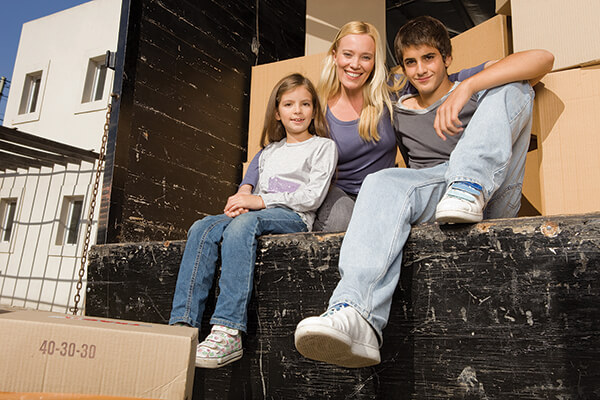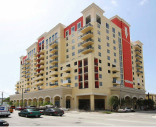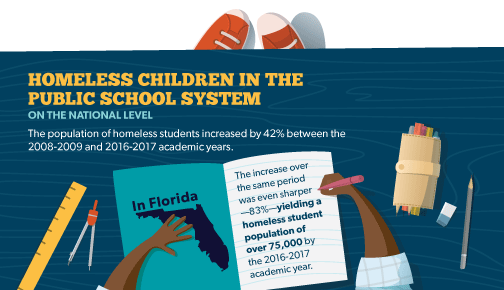Sadowski Funds Make Home a Reality
key facts
According to 2024 Point-in-Time (PIT) counts, communities across Florida identified a total of 31,462 “literally homeless” people—those staying in shelters, on the street, or in other places not meant for human habitation.
Between the 2006-07 and 2011-12 fiscal years, SHIP benefited about 500 homeless households (Florida Housing Finance Corporation data).
Among rental housing developments with outstanding SAIL loans, 736 apartment units are located in developments that specifically target formerly homeless people. This number does not include units in other rental developments that are set aside for formerly homeless tenants (Florida Housing Finance Corporation data).

Homelessness in Florida
When a household’s rent or mortgage payments compete with other basic needs, such as food and healthcare, they are at risk of homelessness. In their 2024 Point-in-Time (PIT) counts, communities across Florida identified a total of 31,462 “literally homeless” people—those staying in shelters, on the street, or in other places not meant for human habitation. Florida’s homeless population, according to the PIT counts, has declined by 37% since 2008, although this drop masks a peak of 57,551 in 2010.
Rehabbed Hotel Becomes a 20-Unit Apartment Complex for Homeless
 The Transition House rehabbed a former Osceola County hotel into Victory Village, a 20-unit apartment complex for formerly homeless families. SHIP is used to help families pay security and utility deposits. When a family moves out of the unit, the landlord returns the remaining security deposit funds to the SHIP program, allowing it to help the next family.
The Transition House rehabbed a former Osceola County hotel into Victory Village, a 20-unit apartment complex for formerly homeless families. SHIP is used to help families pay security and utility deposits. When a family moves out of the unit, the landlord returns the remaining security deposit funds to the SHIP program, allowing it to help the next family.SAIL Funds Redevelops Eyesore into Housing for Homeless, Low-Income Families and Elderly
Carrfour Supportive Housing, a nonprofit developer, used SAIL funds to build Villa Aurora on the former site of a concrete building that was widely considered an eyesore. The development houses 39 apartments for formerly homeless families, 37 apartments for low-income families and elderly households, and Miami-Dade County’s Hispanic Branch library.
A formatted pdf of this information can be accessed here.

